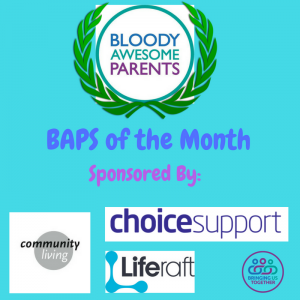Parent Groups – What is Marketing
As we continue with our look at our tips on running a successful Parent Group, we head into the world of Marketing. For this we are splitting it into two posts. One for Marketing – understanding what it is and one for social media and using this to market your group.
So far, we have looked at:
Values and membership play a large part of your marketing so if you haven’t already addressed those, then please take the time to do it. It will certainly make any marketing much easier.
What is Marketing?
Marketing is traditionally the means by which an organization communicates to, connects with, and engages its target audience to convey the value of and ultimately sell its products and services. However, since the emergence of digital media, in particular social media and technology innovations, it has increasingly become more about companies building deeper, more meaningful and lasting relationships with the people that they want to buy their products and services.
Julie Barile – Vice President of eCommerce, Fairway Market
 People often presume that marketing is placing an advert in a newsletter, a website or something similar. However, this is advertising and although this does play a role in marketing, it is not enough on its own.
People often presume that marketing is placing an advert in a newsletter, a website or something similar. However, this is advertising and although this does play a role in marketing, it is not enough on its own.
Think of how you interact with adverts. Do you pop on Facebook and click through on any adverts? Or are you more inclined to click through on something a friend recommends you may like. I know I rarely click through on an advert on Facebook and I know many of my colleagues have said the same.
Think of marketing as a way of telling your story. A way of telling potential members what you offer that they may be interested in. Think of it as persuasion. |As parents, most of you at some time or another will have tried multiple different ways to encourage your child to eat their veg. Usually we will focus on the benefits of eating the veg – you’ll grow strong, you’ll grow, they will help you with that skipping, etc.
This is marketing. You are selling the benefits of veg to your child by telling them what is in it for them. If you try the “eat it or no dessert/ipad etc” threat method (and come on, we’ve all been there), your child may try them but will be adamant that they have no intention of liking it. They also will battle against them the next time.
In the same way, you cannot force your members to want to engage. So trying the “if you don’t join us, your views won’t be heard” or the “if you don’t joints, there is nothing else available” approach doesn’t work, you are not getting people to engage willingly. People need to see what the benefits are for themselves.
What are the benefits for your members? What do you offer that they want?
Research has shown that people engage and make choices because of the way they are treated. If you can find a way to show people that they matter to you, then you are on the way to mattering to them.
Have you ever walked into a shop and had someone walk straight over giving you lots of useless information in order to get the sale? Did you buy? Did you walk away without buying anything? We don’t like to be told what to do or feel pressured into making a decision. Most of us, in the SEND world, often feel like we have few choices and events are dictated by practitioners so why would we engage with a group who dictated to us?
How do you make your members feel? How do they feel about your group?
Marketing is about finding out what the problem is for your members and finding ways to help them solve it. As parents of children with SEND, we may have some similar problems but in the same way that we hate it when our children’s needs are determined by their label, we don’t like it when people presume they know what our needs are just because they have the same label – parent of child with SEND.
As mum to three children with a variety of SEND, I know that my needs as a parent vary from child to child. None of these needs are more important than the other and they are all relevant. Being a parent of a child with a learning disability will bring different needs to those parents of a child with physical disabilities or with health concerns. Think about the now famous quote and see how it applies here too – if you have met one parent of a child with SEND, you have met one parent of a child with SEND. No two are alike.
How do you find out what your members want? Do you offer something which may work for one group of parents but perhaps not another?
Marketing is also not about telling people what to think or do. That sort of idea is brought to you by big egos and poor leaders. It is also a sure fire way of making people disengage. If, as is often the experience of parents, sleep has been scarce, meetings have been plenty and decisions have been taken without any input, how do you think they would feel to then find another group of parents telling you what to be worried about and what you had to do about it?
It is absolutely fine to share views and opinions you may have and to offer advice that has worked for you but always ensure that you are not saying this is the only view or opinion to have. Sometimes, parents may have totally different views or experiences but their input could be invaluable. Don’t scare them off.
Your goal is to want people to want to belong to your group. So what do you do that people want? Does it fill a gap or do others offer the same? How do you tell people about your group?
If you want to read more about Marketing – then I would recommend Bernadette Jiwa – Marketing A love Story. It is only a couple of quid and gives a lot of information about how powerful marketing can be and who does it well.
Next week we will be looking at the promotional side of marketing – mailing lists, websites, and social media along with tips on making them work for you. If you haven’t already looked at our post on communication then pop over and have a quick read.
Marketing – Checklist:
- What are the benefits you can offer your members? This doesn’t have to be a monetary benefit (eg a discount).
- Do you offer something that your members want?
- How do you make your members feel?
- How do you find out what your members want?
- What can you do to make people want to be a part of your group?
Mum to three great kids, each with a different SEN.
Transplanted from the NW to the SE.
Co-founder and Director of Bringing Us Together







